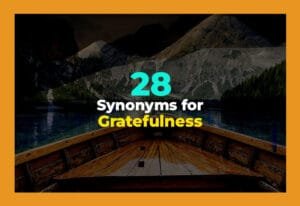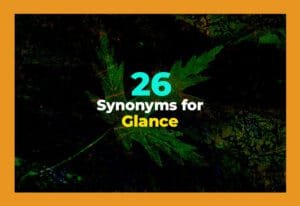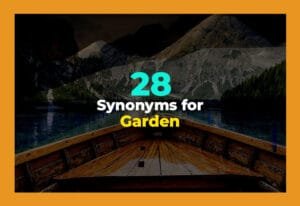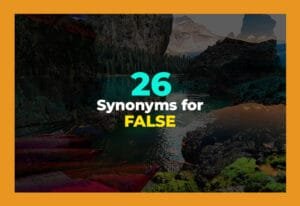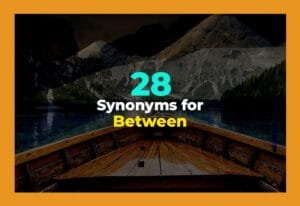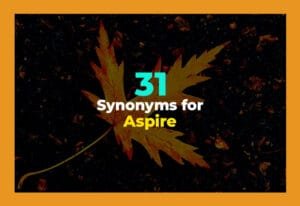You know that feeling when night falls and everything seems shadowy or dim? Darkness can mean so many things, from gloom to twilight. Whether it's literal or just a mood, having different words for darkness helps you express yourself better. Let's explore some fun and easy ways to say darkness, with simple examples you can use right away!
1. Shadow
A shadow is the dark shape made when something blocks the light. For example, “The tree cast a long shadow on the ground at sunset.” Shadows can change size and shape depending on the light's angle. They often feel mysterious or spooky, especially at night. Shadows are everywhere and show how light and darkness interact, helping us understand the world around us better.
2. Gloom
Gloom means a feeling or place that is dark and sad. For example, “The room was filled with gloom after the bad news.” It's often used to describe both physical darkness and emotional sadness. Gloom can make places feel quiet and cold, like a cloudy day or a shadowy forest. It's a word that shows darkness with a heavy or unhappy mood.
3. Dimness
Dimness is when there is only a little light, so things look unclear or faint. For example, “The dimness of the room made it hard to read the book.” Dimness creates a soft and gentle darkness that is not fully dark but not bright either. It's often used to describe lighting that feels calm or sleepy, like early morning or twilight.
4. Obscurity
Obscurity means a state where things are hard to see or understand because of darkness. For example, “His face was lost in obscurity during the night.” It can also mean being unknown or not clear. Obscurity describes a deeper darkness where things are hidden or unclear, creating mystery or confusion. It's a useful word for talking about literal darkness or unclear ideas.
5. Twilight
Twilight is the soft light just before the sun rises or after it sets. For example, “We sat outside enjoying the peaceful twilight.” Twilight is a mix of light and darkness, making the world look magical and calm. It's not fully dark, but the sun's light is fading. Twilight is often a favorite time for quiet walks or watching the sky change colors.
6. Nightfall
Nightfall means the time when night begins and darkness arrives. For example, “We hurried home before nightfall.” It's the moment the sun goes down and shadows grow longer. Nightfall marks the end of the day and the start of darkness. It often feels peaceful or quiet, signaling time to rest or prepare for sleep.
7. Dusk
Dusk is the period just after sunset when the sky is still a little light but darkness is coming. For example, “The birds sang as dusk settled over the town.” Dusk is similar to twilight but usually means the very end of daylight. It's a calm and quiet time, often associated with endings or goodbyes.
8. Shade
Shade is a cooler, darker area created by something blocking the sun. For example, “We rested in the shade under the big oak tree.” Shade gives relief from bright sunlight and can feel cozy or safe. It's not fully dark but provides a break from strong light. Shade is perfect for relaxing on a hot day.
9. Blackness
Blackness means the complete absence of light, pure darkness. For example, “The cave was filled with total blackness inside.” It's the deepest kind of darkness where you can't see anything. Blackness can feel mysterious or scary, but it also represents quiet and stillness. It's a strong word to describe absolute darkness.
10. Murky
Murky means dark and dirty or hard to see through. For example, “The water in the pond was murky and full of leaves.” Murky darkness feels heavy and unclear, often making things look strange or hidden. It's used for dark places like swampy areas or foggy nights. Murky has a sense of mystery and sometimes danger.
11. Shadiness
Shadiness refers to areas full of shadows or darkness, often giving a secretive or suspicious feeling. For example, “The alley had a lot of shadiness, so we stayed away.” It can describe both literal shadowy places and situations that feel unclear or doubtful. Shadiness often suggests caution or hiding something.
12. Dusky
Dusky means slightly dark, usually like the sky just after sunset. For example, “She wore a dusky pink dress that matched the evening sky.” It describes a soft and gentle darkness with a warm, calm feeling. Dusky is often used to describe colors or moods related to fading light and peace.
13. Murk
Murk is thick darkness or gloom that makes it hard to see. For example, “The forest was full of murk after the storm.” It's darker and heavier than simple shade, often mixed with fog or dirt. Murk feels mysterious and a bit scary, like a place where secrets hide. It's a good word to describe deep, unclear darkness.
14. Night
Night is the time when the sun is gone and darkness covers the earth. For example, “The stars shine brightly at night.” It's the most common word for the dark part of the day. Night brings quiet, rest, and sometimes fear because of the unknown. It's a natural part of the day-night cycle and shapes many human activities.
15. Overcast
Overcast means the sky is covered with clouds, making the day darker than usual. For example, “The overcast sky made it feel like rain was coming.” It's not night, but the clouds block the sun and create a dull, grey light. Overcast weather often feels calm or gloomy and changes the mood outside.
16. Cloudiness
Cloudiness refers to the condition when many clouds cover the sky, reducing light. For example, “Cloudiness made the afternoon feel cooler and darker.” It's similar to overcast but can be lighter or patchy. Cloudiness changes how bright the world looks and can affect feelings or plans. It's a natural cause of softer light during the day.
17. Dim
Dim means not bright, with very little light. For example, “The dim light from the candle barely lit the room.” Dimness creates gentle darkness that feels soft and calm. It's often used to describe lights that are purposefully low or fading. Dim places are cozy but can also feel a bit sad or mysterious.
18. Pitch-black
Pitch-black means complete and total darkness without any light. For example, “The basement was pitch-black, and I couldn't see a thing.” It's a very strong way to describe darkness and is often used to make a scene sound intense or scary. Pitch-black is perfect for emphasizing how nothing can be seen.
19. Ebon
Ebon is a poetic word for very dark black, often used to describe colors. For example, “Her hair was ebon, shining like the night sky.” It's a fancy way to say blackness and is often found in literature or poetry. Ebon carries a sense of beauty and depth in darkness.
20. Nocturnal
Nocturnal means active or happening at night. For example, “Owls are nocturnal animals that hunt in the dark.” It's not darkness itself but describes things connected to nighttime. Nocturnal life is often mysterious and different from the daytime world. The word helps explain behaviors and moods linked to darkness.
21. Shadowiness
Shadowiness means the quality of having many shadows or being full of darkness. For example, “The shadowiness of the forest made it feel eerie.” It's a descriptive word that focuses on how much darkness or shading is present. Shadowiness can make places feel mysterious or secretive.
22. Somberness
Somberness means a serious, dark, or gloomy mood or appearance. For example, “There was somberness in the room after the sad news.” It's not just physical darkness but also emotional, describing feelings of sadness or seriousness. Somberness adds depth to the idea of darkness by connecting it to mood.
23. Tenebrosity
Tenebrosity is a rare, fancy word meaning deep darkness or gloom. For example, “The tenebrosity of the ancient cave was awe-inspiring.” It's a strong term for intense darkness, often used in literature or formal speech. Tenebrosity describes darkness that feels powerful and mysterious.
24. Blackout
Blackout means a complete loss of light or power. For example, “During the storm, the whole town had a blackout.” It can also mean a moment when someone loses consciousness or memory. Blackout is used for sudden, total darkness, often causing confusion or fear.
25. Shadefulness
Shadefulness refers to the quality of providing shade or being shadowy. For example, “The garden's shadefulness kept us cool all afternoon.” It describes how much a place or object blocks light, creating cool darkness. Shadefulness often has a peaceful or protective feeling.
26. Shade-like
Shade-like means similar to shade; partially dark or shadowy. For example, “The early morning fog gave the landscape a shade-like quality.” It's used to compare something to the softness of shade, creating gentle darkness. Shade-like darkness is calming and soft.
27. Umbrage
Umbrage originally means shade or shadow but now mostly means offense or annoyance. For example, “He took umbrage at the rude comment.” When used for darkness, it refers to shadow or shade, often poetic. Umbrage connects darkness with feelings or protection.
28. Stygian
Stygian means very dark, gloomy, and often scary. For example, “The stygian depths of the cave were frightening.” It comes from the River Styx in mythology, symbolizing deep darkness and death. Stygian is a dramatic word for intense, fearful darkness.
29. Caliginosity
Caliginosity is a rare word meaning deep darkness or gloom. For example, “The caliginosity of the forest at night was complete.” It's a poetic way to describe thick darkness, often used in literature. Caliginosity conveys a heavy, all-encompassing sense of darkness.
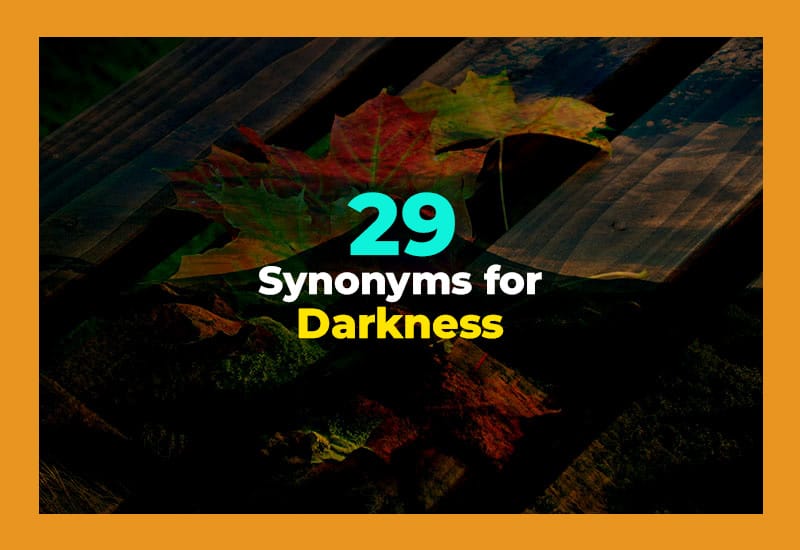
Final Thoughts
Darkness has many faces and feelings, and these synonyms help us describe all of them. Whether it's the soft dimness of twilight or the intense pitch-black of a blackout, each word adds its own flavor. Using these words can make your writing and speech more colorful and clear. Next time you talk about darkness, try a new word to make your meaning shine!


